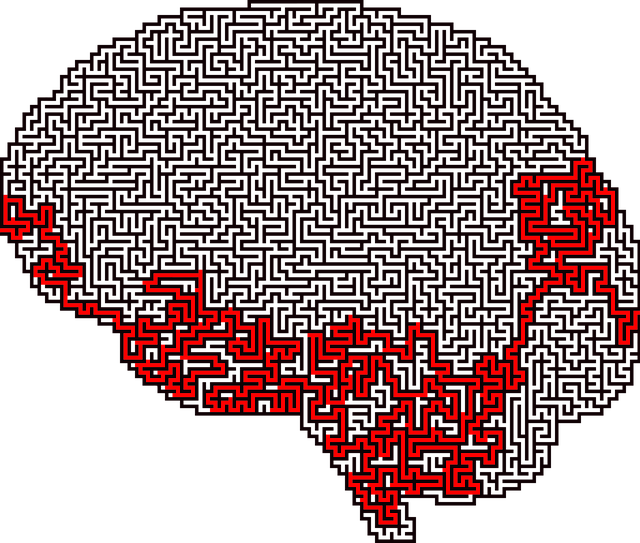Highlands Ranch Dissociative Disorder Therapy (HRDDT) utilizes advanced mental health data analysis techniques to offer specialized, evidence-based treatments for complex dissociative disorders. By integrating statistical methods with qualitative assessments, HRDDT gains deep insights into client experiences and behaviors, enabling personalized care strategies that consider cultural influences. This holistic approach, enhanced by Mind Over Matter principles and community outreach, leads to significant improvements in client symptom management and well-being, making HRDDT a proven and innovative leader in mental health data analysis for dissociative disorders.
Mental health data analysis is a burgeoning field, offering invaluable insights into patient experiences and treatment outcomes. In this article, we explore the intricacies of understanding and interpreting mental health data, focusing on dissociative disorders. From foundational knowledge to advanced interpretation techniques, we delve into how these tools empower therapists in Highlands Ranch Dissociative Disorder Therapy, fostering personalized care and improving patient lives. Discover the power of data-driven insights that transform mental health practices.
- Understanding Mental Health Data: A Foundation for Effective Therapy
- The Role of Dissociative Disorder in Data Analysis
- Interpretation Techniques: Unlocking Insights for Personalized Care
- Case Studies: Success Stories from Highlands Ranch Dissociative Disorder Therapy
Understanding Mental Health Data: A Foundation for Effective Therapy

Understanding Mental Health Data is a cornerstone for delivering effective therapy, particularly when addressing complex conditions like Dissociative Disorder in Highlands Ranch. By meticulously analyzing and interpreting data, therapists can gain valuable insights into their clients’ experiences, behaviors, and emotional states. This approach enables them to tailor treatments, ensuring interventions align with the unique needs of each individual.
The process involves employing evidence-based methods and tools to collect, organize, and assess information. Through this data-driven approach, therapists can identify patterns, track progress over time, and make informed decisions about treatment strategies. Moreover, integrating community outreach program implementation and Mind Over Matter principles can foster a supportive environment, enhancing the therapeutic experience while preventing burnout among mental health professionals.
The Role of Dissociative Disorder in Data Analysis

Dissociative disorders, such as those seen in Highlands Ranch Dissociative Disorder Therapy, present unique challenges when analyzing mental health data. These conditions often involve altered states of consciousness and a disconnect from one’s thoughts, feelings, or memories, which can be difficult to interpret during data analysis. Understanding dissociative symptoms is crucial for accurate assessment and effective treatment planning. Mental health professionals must consider the potential impact of dissociation on an individual’s behavior, perceptions, and responses during therapy sessions, as well as in their everyday lives.
By integrating cultural sensitivity in mental healthcare practice, therapists can better navigate the complexities of dissociative disorders. This includes recognizing how cultural factors may influence the expression and experience of dissociation, and adapting coping skills development and social skills training accordingly. Through these approaches, professionals can enhance their ability to interpret data accurately, ultimately fostering more personalized and successful therapeutic outcomes for those struggling with dissociative conditions in Highlands Ranch or beyond.
Interpretation Techniques: Unlocking Insights for Personalized Care

In the realm of mental health data analysis, interpretation techniques play a pivotal role in unearthing valuable insights that can shape personalized care strategies. Through advanced statistical methods and qualitative assessments, healthcare professionals can gain a deeper understanding of complex conditions like Dissociative Disorder, prevalent in Highlands Ranch communities. By delving into this data, they unlock the potential for more effective treatment plans tailored to individual needs.
This process involves not only identifying patterns within the patient population but also considering cultural factors and societal influences that might impact mental health. Enhancing public awareness campaigns and fostering discussions around Mental Health Awareness can further enrich these interpretations. Moreover, integrating insights from Self-Care Practices into therapy sessions can lead to transformative outcomes, ensuring patients receive holistic care that addresses their unique challenges and aspirations.
Case Studies: Success Stories from Highlands Ranch Dissociative Disorder Therapy

In the realm of mental health data analysis, case studies serve as powerful tools to demonstrate the effectiveness of specialized therapies. One notable success story is found in Highlands Ranch Dissociative Disorder Therapy. This unique approach has revolutionized the way professionals address complex dissociative disorders. By employing tailored communication strategies and crisis intervention guidance, therapists in Highlands Ranch have achieved remarkable outcomes. The program incorporates Mind Over Matter principles, empowering individuals to regain control of their lives and overcome traumatic experiences.
Through meticulous data interpretation, it becomes evident that Highlands Ranch Dissociative Disorder Therapy has become a game-changer. Many clients report significant improvements in their ability to manage symptoms, leading to enhanced overall well-being. This success story underscores the importance of evidence-based practices and personalized care in mental health treatment, setting a benchmark for similar programs across the country.
Mental health data analysis is a powerful tool that can significantly enhance therapeutic outcomes, especially in treating complex conditions like dissociative disorders. By understanding and interpreting mental health data effectively, therapists in Highlands Ranch Dissociative Disorder Therapy can tailor treatments to individual needs, fostering personalized care that addresses the unique aspects of each client’s journey. The techniques and case studies outlined in this article highlight the transformative potential of data-driven approaches, offering a promising path forward for improving mental well-being.












